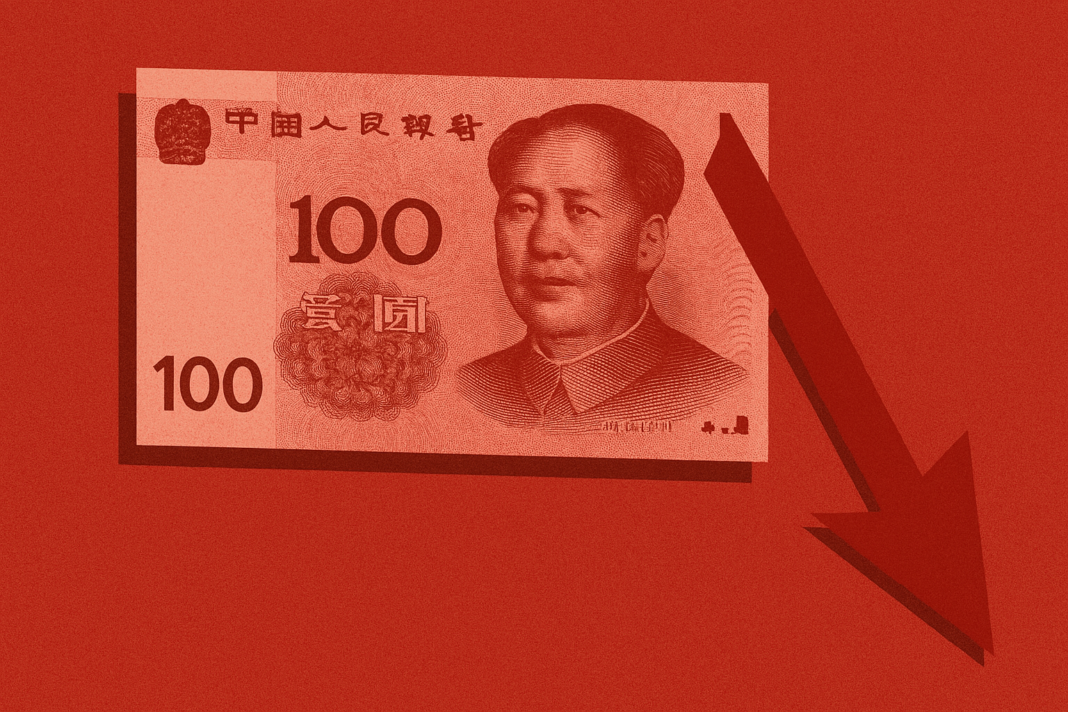The Chinese yuan has dropped to its lowest level against the U.S. dollar in 18 years, raising concerns over China’s economic outlook and the effectiveness of government efforts to stabilize its currency.
The onshore yuan (CNY), traded within mainland China, fell to 7.36 per U.S. dollar on Wednesday, the weakest point since late 2007. The offshore yuan (CNH), which is more market-driven and traded internationally, mirrored similar levels. The currency’s fall reflects growing pressure from slowing economic activity, capital outflows, and widening interest rate gaps with the United States, according to Reuters.
Economic Drivers Behind the Slide
China’s economic recovery remains uneven. Weak consumer demand, persistent troubles in the real estate sector, and sluggish industrial activity have weighed on investor confidence. At the same time, while the U.S. Federal Reserve has kept interest rates high to combat inflation, the People’s Bank of China (PBOC) has taken a more accommodative stance, cutting key rates in an effort to stimulate domestic growth. This growing monetary policy divergence has intensified downward pressure on the yuan.
Analysts suggest the continued strength of the U.S. dollar, backed by robust U.S. economic performance and high yields, is drawing capital away from emerging markets, including China. As a result, foreign investors are reducing exposure to Chinese assets.
Policy Response and Market Outlook
The PBOC has taken steps to prevent a steeper fall by setting stronger-than-expected daily reference rates and guiding state-owned banks to stabilize market sentiment through dollar sales. However, these efforts have offered only temporary relief.
“There’s a limit to how much intervention can help without addressing the root causes of capital flight and investor caution,” a currency strategist told Reuters.
While the central bank has so far avoided drastic measures such as capital controls, the yuan’s slide continues to test policymakers’ resolve in maintaining financial stability without compromising economic growth.
Global Implications
A weaker yuan can boost China’s exports by making them cheaper on the global market. However, it also raises risks of renewed trade tensions with the West, especially with the United States entering a critical election season.
Market watchers now remain focused on how Beijing will manage its currency policy going forward and whether further support measures will be introduced to stabilize investor confidence
A global media for the latest news, entertainment, music fashion, and more.





